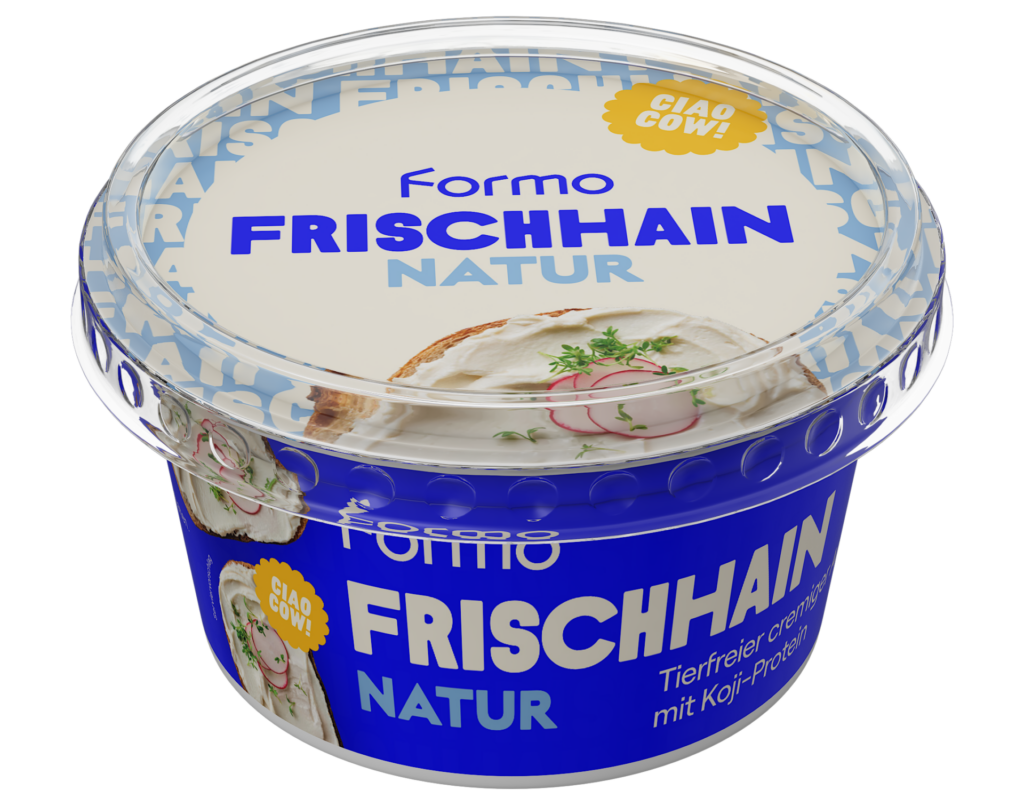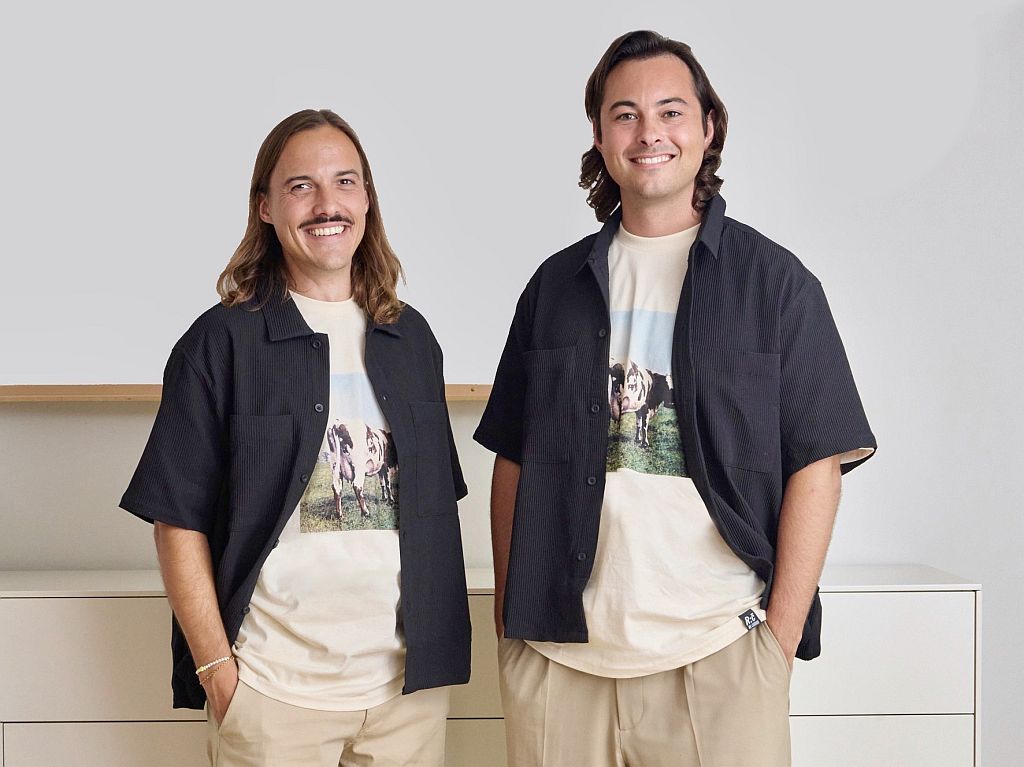- Berlin-based fermentation startup Formo has raised a $61 million Series B round and launched cheeses featuring koji protein at 2,000+ REWE, BILLA, and Metro stores across Germany and Austria.
- The round was backed by existing investors including Foodlabs, EQT Ventures, Lowercarbon Capital, Happiness Capital, Elevat3 Capital, M Ventures and Grazia Capital, and new investors including Sazaby League, Seven Ventures, Woodline Partners, Indiposa Investments, The Nature Conservancy, and REWE Group, Europe’s second largest retailer.
- “Few European companies are raising such large rounds within climate tech,” said Sandra Malmber, Partner, EQT Ventures. “A key success factor [behind the large raise] was proving commercial traction, which is a rarity for this type of company at this point in its lifetime.”
Koji protein’s ‘remarkable similarity to the functional properties of whey protein’
Formo (founded in 2019 as LegenDairy Foods) is best-known for its work to engineer microbes to express dairy proteins such as casein via precision fermentation. However, it is using different technology in its first range of cheeses, instead growing naturally occurring Aspergillus Oryzae (koji) as an ingredient via fermentation. It then adds plant-based fats and other ingredients to make cheese alternatives such as ‘Frischhain’ and ‘Camembritz.’
Formo is currently able to produce triple-digit tons of its cheese monthly and plans to triple its capacity in the coming year, head of global public affairs and general manager, APAC, Christian Poppe told AgFunderNews.
“Our process begins in steel tanks like in a typical brewery. Koji strains are fed a nutrient bath of sugars and micronutrients. The nutrient bath usually includes wheat flour or other carbohydrates. Then the Koji strains consume the nutrients and produce Koji Protein. Finally we separate the biomass from the liquid. The Koji Protein is in the liquid, so we filter and dry it in spray dryers. This is how we get to the Koji Protein.”
He added: “Koji has a long history in food production and offers a unique profile for plant-based cheese products. Its versatility allows us to produce a clean, nutritious base, which we can build upon to create innovative and sustainable dairy alternatives. We’ve been working on this innovation for the past two years.”
Koji “has a neutral flavor and high functionality, which means it’s perfect for creating cheese alternatives that closely match the texture and taste of traditional cheese,” added the firm, which said “additional technological leaps” made over the past 18 months had enabled it to “launch with strong profitable product margins.”
Cheeses containing casein proteins via precision fermentation on track to debut in 2025
That said, koji does “not currently offer the same stretchability and meltability performance that traditional casein or whey proteins deliver – or that bioidentical casein products made through precision fermentation will offer,” said Poppe, who said Formo remains on course to expand its portfolio to include hard cheeses featuring animal-free casein next year.
“To ensure that we bring that extra meltability to consumers as fast as possible, we are doubling down on precision fermentation to create bioidentical casein proteins, which will offer the melt and stretch functionality that people expect from traditional dairy cheeses – as we always have done.”
Formo is currently focused on launching its own consumer products containing the casein proteins, he explained. “At this point, we do not plan to supply these proteins as B2B ingredients, as our vision is to create a complete and compelling brand that consumers can directly engage with, as we believe the ingredients market will quickly become commoditized.
“Our vision goes beyond that—we want to be the largest cheese company of the future. We aim to become a real challenger brand by offering convincing, high-quality end consumer products that redefine what cheese can be. We don’t have plans to supply casein proteins or koji protein to other companies at this time.”

The manufacturing setup: ‘Building our own facilities is not a priority’
As for the manufacturing setup, he said, “At this stage, building our own facilities is not a priority. While we don’t rule out investments in infrastructure in the future, we currently focus on partnerships that leverage the best of both worlds. Formo is leading in food innovation, and we collaborate with partners who bring the necessary expertise and infrastructure for large-scale manufacturing.
“By partnering with traditional cheese manufacturers, we can further ferment our ingredients into cheese alternatives using conventional production methods. Our goal is to expand with these strong partners.”
On the regulatory front, he said Formo is actively working on securing self-GRAS status for its casein proteins. Given its history of food use in products such as soy sauce and miso paste, koji does “not require any special approval or regulation,” he said.
Further reading:





